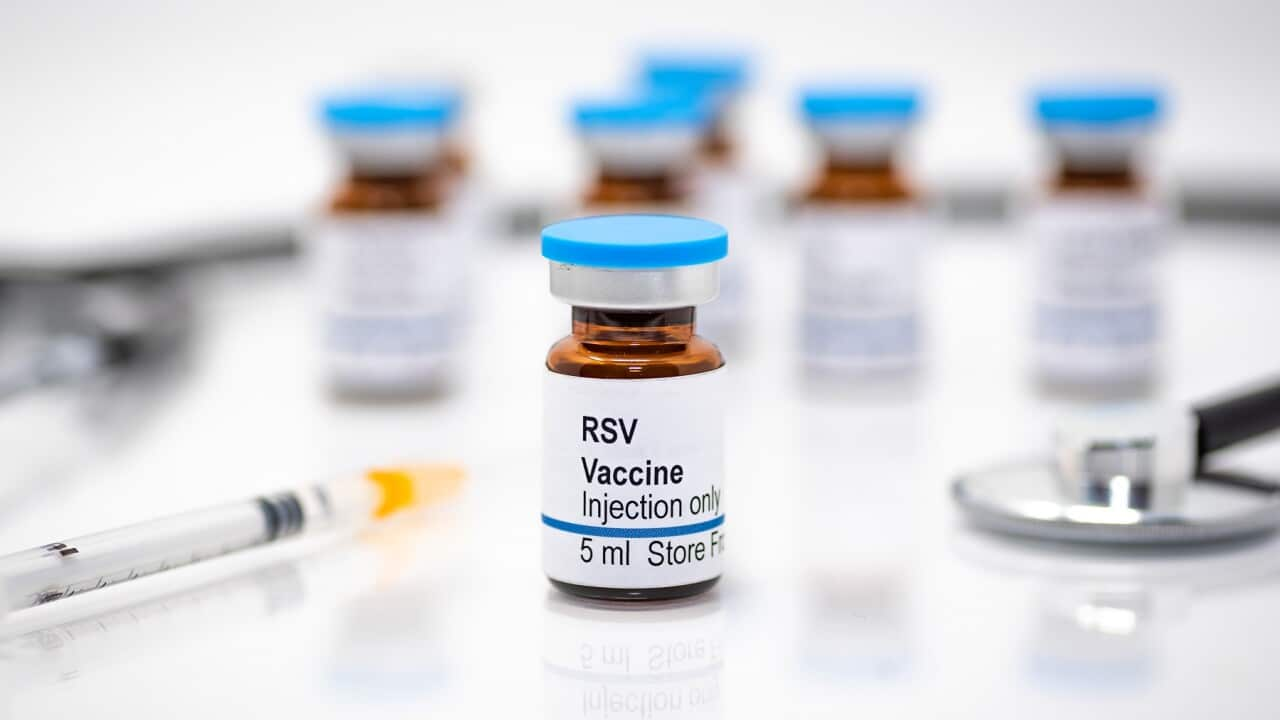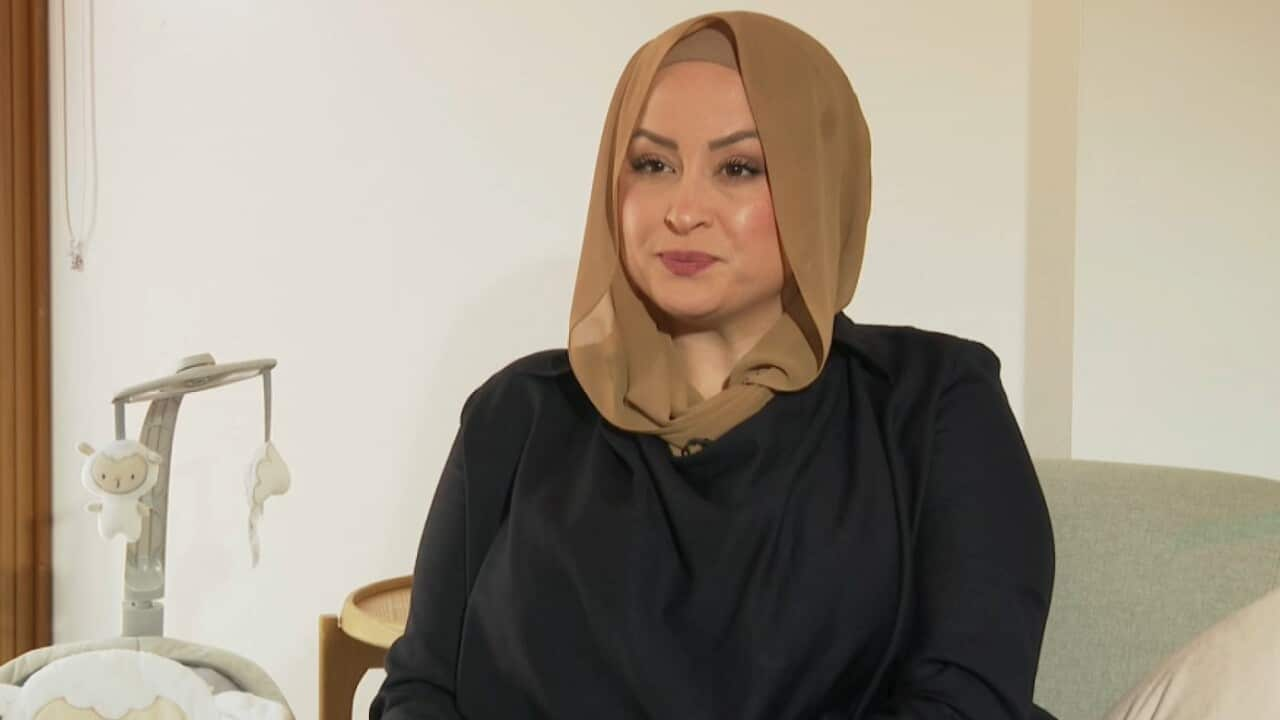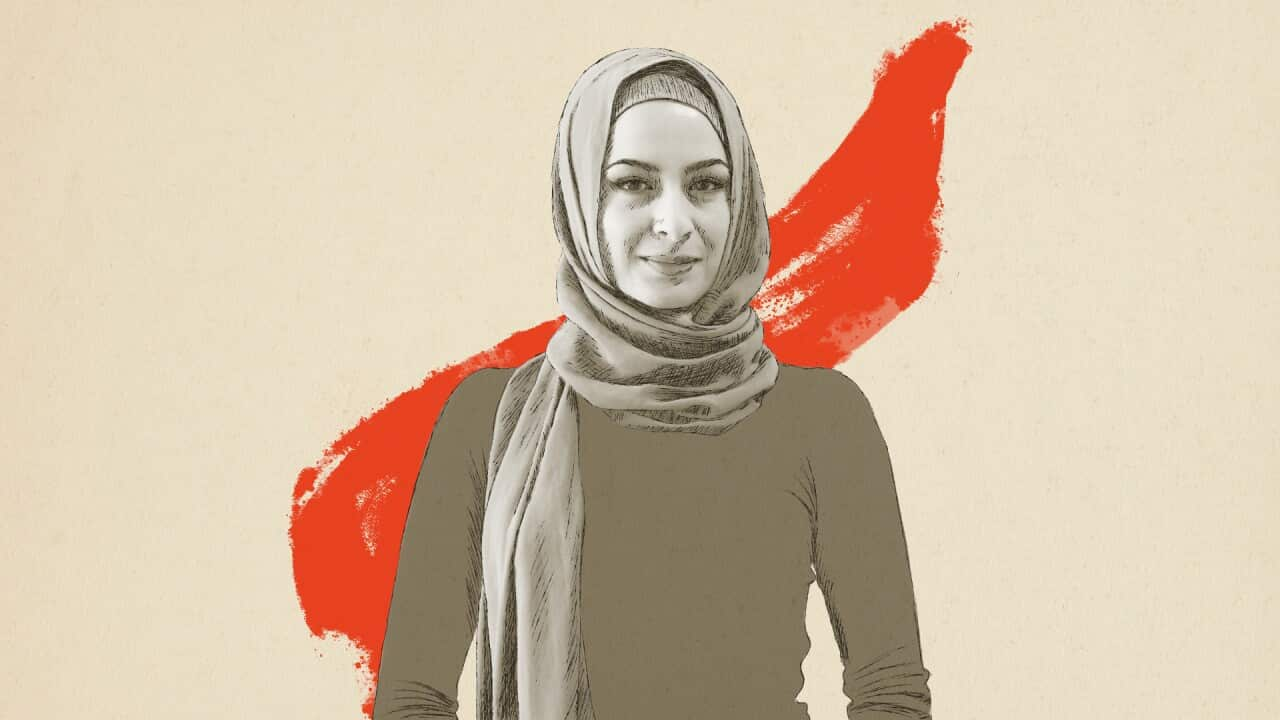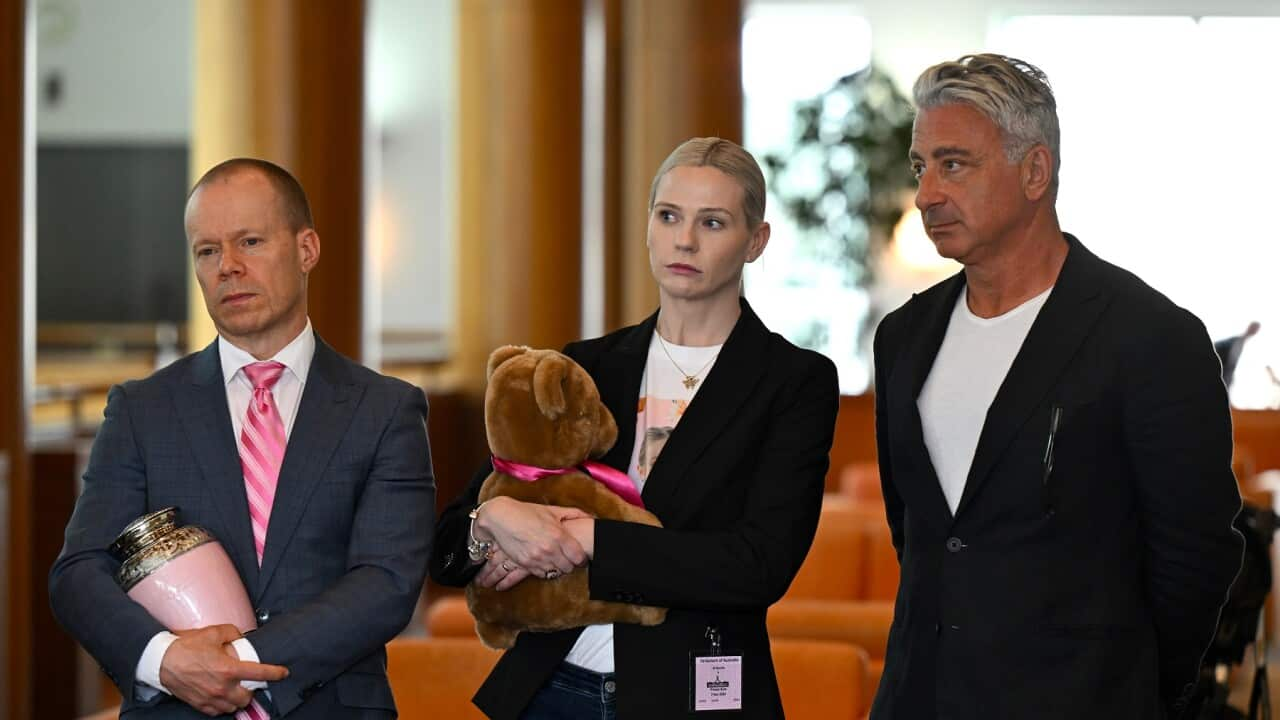TRANSCRIPT
Since the legalisation of voluntary assisted dying, over 2,460 terminally ill Australians have made the choice to end their lives this way.
Heil Brecht was among the first in New South Wales.
She was born in Estonia and escaped the Soviet invasion in 1944, then spent four years in a refugee camp in Germany, before coming to Australia.
Here, she worked at the Australian National University for many years and enjoyed gardening, reading and cooking.
In her latter years she moved to Grafton, New South Wales, to be closer to her son, Nick.
Soon after, she started having neurological symptoms.
Nick tells SBS News his mother was eventually diagnosed with Progressive supranuclear palsy (PSP).
There is no cure for the rare neurological condition that can cause problems with balance, movement, vision, speech, and swallowing.
"My Mum's very pragmatic, and so she can see where something's going. She was always going to make her own decisions about it, and she was quite frank with my sister and I, and explained that, look, things are getting worse, I'd like to consider, as she understood that VAD was going to become an option in New South Wales. And so she did a bit of research and started talking to people, and she said, Well, if I start getting worse, this is an option that I'm going to consider."
Sadly, her condition worsened.
"In the year prior to it becoming law, last November, her condition started deteriorating very rapidly, her mobility. She lost her ability to read books, which was one of her loves, and she was pretty much confined to sitting in a chair and watching television towards the end, and she said, 'this isn't a life.' And her understanding of, or her feeling of where she was heading in before a diagnosis was that she was going to be bed bound and unable to communicate. ... She didn't want to be caught in a body that was immobile and a brain that was 100 per cent and that was one of her big concerns. She didn't want to suffer like that."
As soon as voluntary assisted dying became legal in New South Wales Mr Westman's mum told him to call New South Wales Health and get the process started.
"So we got in contact with the VAD unit of New South Wales Health, and they were fantastic throughout the entire process. I can't say more about how caring and professional that that unit is, and we got onto the care navigator service, and pretty much straight away, they organised a meeting. Two doctors came up to Grafton and assessed mum, and that was the start of the process. And there's a lot of checks and balances through the process, as you may be aware, so I was very impressed by the professionalism. And also it's all about the patient making the choice and there's many options throughout the process for you to say no, even right at the end."
Ms Brecht decided to go ahead with the procedure in the end, and died peacefully in hospital surrounded by her loved ones.
It is a similar story for Dr David Levitt and his wife Pauline McGrath.
David had a brain tumour and with voluntary assisted dying becoming legal in New South Wales, he told Pauline he wanted to die on his own terms.
"In the early hours of the morning in late April, as I helped him get out of bed to use the bathroom once again, as his body had started to fail and his capacity to ambulate and mobilise independently was leaving him. I got him back into bed, and he said to me, 'I'm done, Pauline, I've had enough'. What that allowed for our family was the time for us all to gather together. We could get Hannah up from interstate without feeling under pressure to do that, and we had the capacity to spend time together as a family, reflecting on how much we loved being a family and how important it was - much of what our family, meant to us in so many ways. And it allowed us the time and the comfort to know that this was going to happen."
Pauline remembers the night David's suffering ended.
"We had Claire and Hannah mix the substance up for David, and we laid him in bed, and we surrounded him, and we talked to him about how important he was. He drank the substance, and within two minutes, David gently went to sleep. He had a bit of a snort, because he was a well-known snorer and then just quietly, 20 minutes later, with my head on his chest, I heard his heart slow and stop."
Go Gentle Australia has released a landmark report, The State of Voluntary Assisted Dying, which compiles and analyses official data from all Australian jurisdictions for the first time.
The report examines how VAD laws are functioning, who is using them, and what improvements are needed for a more effective and compassionate system.
Since it was legalised, over 2,460 terminally ill Australians have chosen to end their lives with dignity.
The report paints a mostly positive picture of how these laws are operating.
The report highlights that while demand for VAD services is growing, they still account for only 0.5 per cent to 1.6 per cent of overall deaths.
However, there is room for improvement in the system.
Andrew Denton, the Founder of Go Gentle, advocates nationally for end-of-life choices, including voluntary assisted dying which he says has been revolutionary.
"The word revolution usually conjures other words such as anger and upheaval. Rarely does it bring with it words like beautiful, compassionate and peaceful. But repeatedly, those are the words used by families to describe the deaths of the roughly two and a half thousand Australians who have used VAD since 2019, when Victoria became the first state to offer this choice. They are the same words most often used to by the many health professionals, GP'S specialists, nurses, pharmacists, palliative care providers, who've helped them along this path. Beautiful compassionate peaceful."
The report generated by Mr Denton's organisation painted a positive picture of how the laws are working.
"Now today, for the first time a comprehensive data rich national picture of exactly what that looks like and I'm pleased to say what that looks like is very much a good news story. That law has had three fundamental aims, to give dying people an additional choice, to relieve suffering for to do so safely. This report collated from data published annually by state VAD oversight boards along with that Go Gentle annual Australian survey, and extensive interviews with dying people, their families, and VAD health professionals, makes clear that on all three measures. These laws have been a success."
While the system is working well, there is room for improvement.
The report recommends streamlining bureaucratic processes, recognising VAD as part of high-quality end-of-life care, and establishing clear clinical standards.
It also highlights the need for culturally safe resources, especially for First Nations and culturally diverse communities.
A key issue is reforming the Commonwealth Criminal Code, which restricts electronic communication in the VAD process.
This creates challenges for those in remote areas, who must travel for in-person consultations.
Go Gentle Australia and 17 health organisations are urging the federal government to amend this restriction.
The report also calls for expanding the trained VAD health workforce to meet growing demand.
Dr Linda Swan is the CEO of Go Gentle Australia.
She says demand for VAD is increasing and more doctors are needed.
"Three key things that are relevant to us all, one is we will need more VAD healthcare practitioners. The report shows that demand is growing, and we know, with an aging population, demand is likely to increase. Voluntary assisted dying is a tiny proportion of overall deaths, only about one per cent but we also have a small number of healthcare practitioners who are delivering voluntary assisted dying care. Our Kiwi cousins do it better than us. They've got about twice as many doctors per head of population than us, but even they say they haven't got enough."
Dr Bu O'Brien is one of the professionals trained and certified to assist in the VAD process.
She tells SBS News there are several factors keeping more doctors from becoming VAD professionals.
"I think that one of the reasons is that that people aren't doing this job more ... is the remuneration, and the other reason is their beliefs maybe. There are still many conscientious objectors in the medical family, and I'm not sure why, whether a lot of that is just not knowing what the actual process and the job is about, because I do meet a lot of people in the public that really don't know the details of it. And you know, might say to me, Oh, you euthanase people, or you put people down."
In 2022, Catholic Archbishop of Brisbane and former president of the Australian Catholic Bishops Conference Mark Coleridge told the Australian newspaper people choosing voluntary assisted dying would not receive Holy Communion for the dying, a key part of the last rites for Catholics.
He also said priests would also withhold the concluding Prayer for the Dead.
At the time, Go Gentle Australia condemned the Catholic Church’s edict that terminally ill people who end their lives with voluntary assisted dying will be denied spiritual care.
SBS News contacted the Archbishop of Brisbane but His Grace declined to be interviewed.
As for Dr O'Brien, she says on the day that a patient chooses to administer the life-ending substance, she is there along with another professional to assist in the process.
"When I go into an admin day, as I call it, the navigator comes along and we support each other, we support the family. But what's on my mind on that day is making it as smooth flowing as possible for the patient who's having the admin, but also for the family. So generally, the assessment before we've talked through how what's going to happen, what I'm going to be doing, because preparation is everything. So my aim is that the family don't focus on what I'm there to do, but they focus on being with their loved ones."
For her it is a privilege to be part of a person's final hours surrounded by their loved ones.
"We're very moved by some of the goodbyes that are said. And sometimes, you know, there are jokes, there are poems, there are goodbyes and advice from the patient - to be to be good to each other, to love each other. It's a huge privilege to be part of those conversations. It really is, and we do try and make ourselves as invisible as possible. But no, I don't you know it's not my grief to carry. I mean, I think grief of losing someone is if you're really going to be waking up every day, pretty much for the rest of your life, thinking about this person. As doctors we I think I speak for most of us, is that we know that it's not our grief to carry.”













